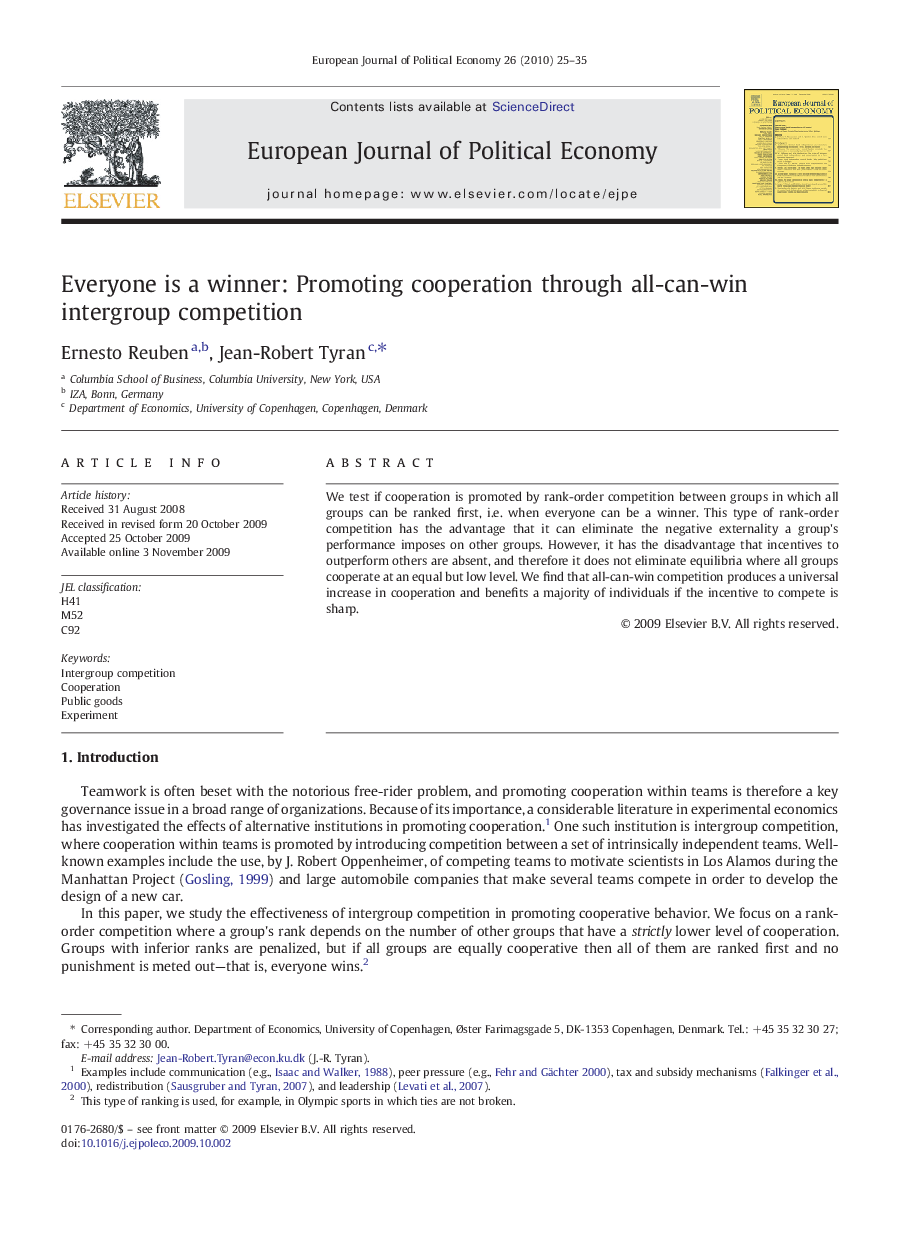| Article ID | Journal | Published Year | Pages | File Type |
|---|---|---|---|---|
| 5068430 | European Journal of Political Economy | 2010 | 11 Pages |
Abstract
We test if cooperation is promoted by rank-order competition between groups in which all groups can be ranked first, i.e. when everyone can be a winner. This type of rank-order competition has the advantage that it can eliminate the negative externality a group's performance imposes on other groups. However, it has the disadvantage that incentives to outperform others are absent, and therefore it does not eliminate equilibria where all groups cooperate at an equal but low level. We find that all-can-win competition produces a universal increase in cooperation and benefits a majority of individuals if the incentive to compete is sharp.
Related Topics
Social Sciences and Humanities
Economics, Econometrics and Finance
Economics and Econometrics
Authors
Ernesto Reuben, Jean-Robert Tyran,
